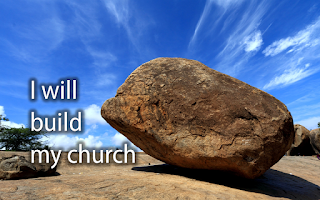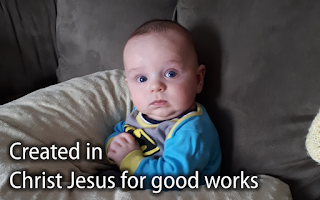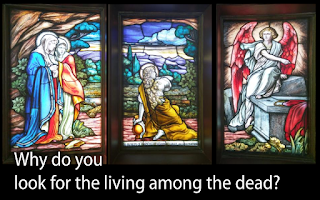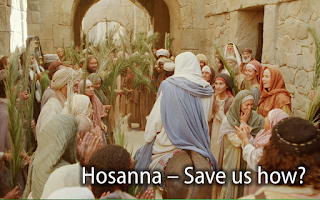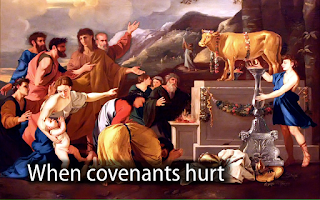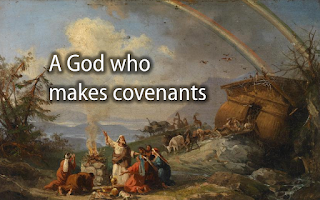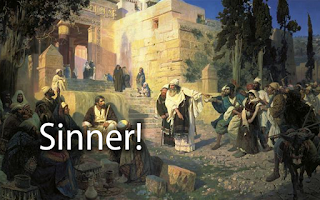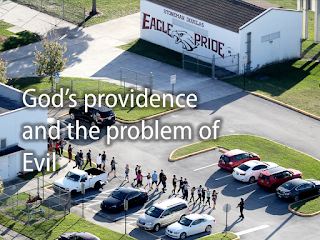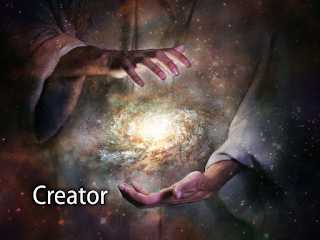Hespeler, 15 April 2018 © Scott McAndless
Matthew 16:13-20, Matthew 7:24-27, 1 Corinthians 3:10-17
| I |
hope you all know by now that, after the Gala Dinner this evening, I will be starting a ten week period that is called an intermission in the Presbyterian Church in Canada. I will be away from the ministry of this congregation and of the larger church for that entire period. I decided to request this for a number of personal reasons – because I felt a great need to res t and refresh and to renew the passion that had nourished me over the past twenty-five years of ministry. So I certainly have a few personal goals that I want to work on, but, that is not necessarily what I wanted to focus on today.
I have been thinking a lot about what I wanted to preach about today, and I don’t really want to focus on me, but rather on the church. In particular, I want to ask how the church can grow and develop during a short season without a regular minister. I know what the natural tendency is, of course. I know that during a vacancy, for example, it is not uncommon for people to drift away from regular church attendance or for various activities of the church to pause or even languish. The problem seems to be that people assume that ministry is something that only the minister does and that if there is no minister for a period of time then there is no ministry. And I hope we can all prove over the next little while that that is a damnable lie from the devil.
It is maybe not too surprising that people think that way when you consider passages of scripture like the one that we read in the Gospel of Matthew this morning. In this passage, Jesus brings up the whole matter of building the church. He is not talking about setting up a church building, mind you, but is talking about establishing the church as a force in society – something that can have a real impact for good in changing times. In many ways, I believe he is talking about how you build a church for times such as the ones that we live in.
And Jesus seems to have some pretty clear ideas about how you build such a church. You build it on a rock, but not just any rock. Jesus wants to build his church on a very specific rock. This is what Jesus says, “Blessed are you, Simon son of Jonah! For flesh and blood has not revealed this to you, but my Father in heaven. And I tell you, you are Peter, and on this rock I will build my church.”
Now of course, it makes good sense, if you are going to build anything, that you should build upon a good foundation and building on a rock sounds like a good way to do that. But Christians, down through the ages, have disagreed about just what metaphorical rock Jesus is talking about in this passage. You have probably heard, for example, about the traditional Roman Catholic interpretation of this passage. It is based upon the nickname that Jesus gives to Simon. Jesus was apparently quite fond of giving people nicknames. We’re told that he called the disciple Thomas by the name Didymas which means “the twin,” no doubt because Thomas was the spitting image of someone. He called Mary Magdalene, which means “tower” and I sometimes like to think that he did it because he saw her as a strong protector who would watch over the movement that he had started.
Simon he called “Peter” which means rock – just plain rock. This nickname is not explained anywhere in the gospels (not even in this passage we read this morning, I would suggest) but you just have to think of the modern celebrity who also goes by the name of “The Rock” to get an idea of what the nickname might have been referring to. When you think of Dwayne Johnston what traits come to mind? Strong, certainly, stubborn, not someone you would want to get in a fight with and, how do I put this, not necessarily the smartest guy in the room, though you would never tell him that to his face! I like to think that it was those traits that led Jesus to call Simon by the name of Rock which was Keppa in Aramaic, the language Jesus spoke, or Petros in the Greek of the New Testament. We get the name Peter from the Greek.
But Roman Catholic theology has taken that nickname and made it the basis of its understanding of the church. They interpret this passage to mean that Jesus was promising to build the entire structure and the very being of the church on Simon Peter himself – that this one man alone would be the foundational rock of the church. Of course, Catholic tradition teaches that Simon Peter went on to become the Bishop of Rome and that is why they believe that Peter’s successor in that office, known today as the Pope, is the one man around whom their entire church is still structured to this very day.
Now, I don’t mean to offer any specific criticism of the Roman Catholic Church or its structures here. I may not agree with all of their teachings but I certainly respect the institution and many of the good works that the church does. My question is rather about what Jesus actually intended, not when you think about the structure but rather when you think about the day-to-day life of the church. We in the Protestant Church may not agree that the entire church should be structured around one man in Rome, but on a local level, I’ve got to ask, isn’t that exactly how we build our churches. In so many churches that I have seen, the weight of the church and its life and its work tends to fall on just a few individuals – they are the rocks upon which we build our churches.
Now I am not saying this as a way of complaining that all of that weight get loaded exclusively on the minister. That’s not what I mean. I know (and greatly appreciate the fact) that I am far from alone in doing the work of this church. But it is true in this congregation, as it is true in so many, that that weight does fall on relatively few. Our staff does carry a great deal of weight as do key volunteers. And I have to wonder, is that really how Jesus envisioned that it would be in the church. When we build the church on the foundation of a few rocks (if those rocks are people as one interpretation of this saying of Jesus would suggest) it is undeniably hard on those rocks and some of them crack and strain under the pressure. Some of those rocks break down, some of them step down before they really want to, some withdraw altogether. We’ve all seen it happen.
And one thing I particularly note is this, it is not necessarily the work of the church itself that tends to wear those rocks down. Most of the work of the church is actually a great joy. To teach the gospel message to children, that is a joy and honour. To visit the sick or struggling, that can be difficult but it is also very rewarding as is feeding the hungry, clothing the naked and preaching the word of life. Most people who contribute to the work of the church in a way that utilizes their own personal skills and strengths find that, in general, the work itself builds them up. No, the things that tend to make those rocks crumble are the other things: criticism of themselves or others, being taken for granted or not being appreciated for who they are, griping, complaining and general negativity. These things, from what I have seen, are what are most likely to wear down the rocks upon whom we build our church.
And I think that the reason why we do that – why we so easily turn the joy of ministry into the burden of dealing with all the negativity of the church is precisely because of this idea that we have that the church is built on the foundation of a few rocks that are people. When we think that they are the ones who are supposed to hold up the church, it becomes easy to focus any negative energy that arises upon them. (And negative energy always arises simply because we are human and things will never go perfectly).
And, no, I don’t think that that is how Jesus wanted to see any church that came out of the movement he had started behave. And it is that, more than any historical differences in interpretation between Protestants and Catholics, that makes me think that it is not correct to suggest that Jesus, in this passage, is trying to say that the entire church should be built in such as way as to depend on one person – even such an extraordinary person as Simon Peter. I believe that Jesus meant something else.
Now, I could try to make my point here by delving into the original language and grammar of the passage. I have read many a commentary on this passage arguing over the connection between the name Peter (which is Petros in Greek) and the Greek word for rock (which is petra). Some people argue that it is obvious that both words refer to the same thing while others argue that it is obvious that they do not. Of course, as you find in so many debates these days, the only thing that is truly obvious is that everyone can only see whatever supports what they have already decided to believe. I don’t think we can count on grammar to solve this one for us.
And so, instead of focussing on that one word, rock, let us look at what Jesus has to say about the purpose of the entire project. This is what Jesus has to say about the church that he wants to build: “the gates of Hades will not prevail against it.” That is a pretty audacious promise and it is one that is often misunderstood. You see, it is often understood to be a promise about the defense of the church. People assume that Jesus is talking about the church being under siege – that the powers of Hades (or Hell or evil or however exactly you want to understand that) are attacking us and the promise is that they will not prevail, they won’t win.
But actually that is not what Jesus is saying at all, because he talks about the gates of Hades. And when have you heard of gates attacking anybody? You haven’t because gates are defensive structures, not offensive. The role of the gates of Hades is not to attack but to defend against attack. So the picture of the church that Jesus is painting here is not the picture of a church defending itself against the attacks of evil but rather a church on the offensive.
And I think that this is a very important point because so much of what we do in the church seems to be defensive. We are fearful of the loss of status of the church, we are fearful of change. We feel as if the church is under attack in society and that is the source of a lot of the negativity that we feel. We are always trying to keep up appearances, to pretend that nothing has changed and when we do that we tend to pile more and more on the people who do the work of the church. But right here, right in this passage, Jesus has revealed to us that the church is not made to be on the defensive. We have been made the storm the gates of Hades – to take the evil of this world head on – and not to cower in fear. If we really believed that, how different would our attitude be and how much weight would it take off of the foundation rocks of our church?
In the end, I don’t believe that the church depends on any one person – not on Peter, not on me, not on you. If the church does not find its foundation in Christ himself and in the confession of Christ that Peter made, it will not succeed. (And, by the way, I think that was what Jesus was saying when he spoke about building his church on a rock.)
I realize that the next several weeks will create somewhat of a shakeup in the human leadership of this congregation. It may not all go smoothly; there may be some disruption. But I honestly believe that it can be a good thing because if that can show us where the true foundations are, maybe we can stop being defensive or afraid and get on with the work that Christ has given all of us to do.
